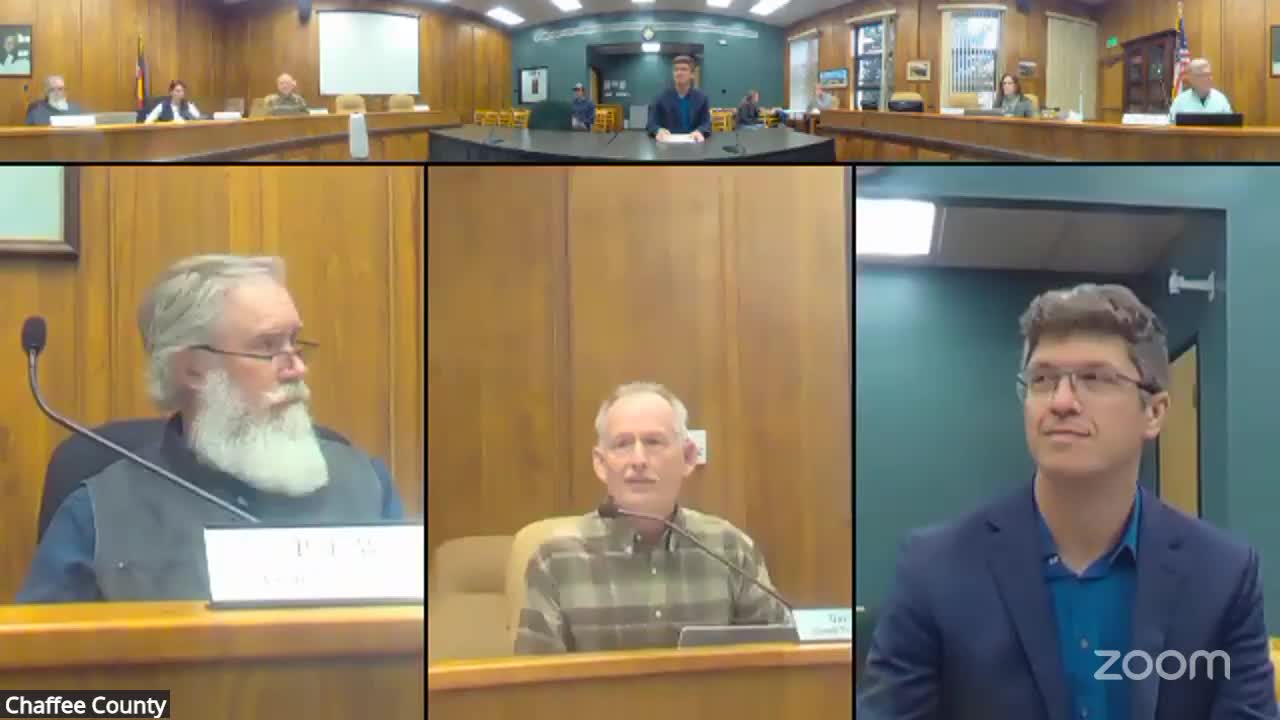New Auditor Gives Chaffee County a Clean Opinion but Flags Three Findings
Get AI-powered insights, summaries, and transcripts
Subscribe
Summary
DMC Audit and Consulting partner Dimitri Trignac told the Chaffee County Board of Commissioners that the firm issued an unmodified opinion on the county's financial statements while identifying three reportable findings.
DMC Audit and Consulting partner Dimitri Trignac told the Chaffee County Board of Commissioners that the firm issued an unmodified opinion on the county's financial statements while identifying three reportable findings. Trignac described the audit as a first-year engagement that produced a clean opinion but uncovered accounting and control issues that the county must address.
Trignac said the audit's objective was to obtain "reasonable assurance" the county's financial statements were free from material misstatement and that the firm performed the audit under generally accepted auditing standards and government auditing standards, including the single-audit requirements triggered by federal awards. "The county did receive an what we call that, unmodified opinion, which is a clean opinion," Trignac said.
The auditor identified three categories of findings. First, there were material audit adjusting entries, including restatements of prior-year amounts because certain revenues and expenditures were not recognized in the proper period. Trignac described the restatements as material to the audit and directed commissioners to the report schedule and page references; when asked about order of magnitude he said, "It's $6.06 figure number" and later described netting amounts as "whatever's $7.81 minus $4.61 plus around $400,000." The auditor said the restatements largely reflected timing and accounting-period issues.
Second, the audit recorded a significant deficiency tied to inconsistent procurement and suspension/debarment documentation for a small number of vendors. Trignac said the process exists but was not applied consistently: "there was so specialty bar was done for some vendors but not others, so it was just not consistent. But the process is there."
Third, auditors reported a material weakness over internal controls for the schedule of expenditures of federal awards. Trignac said the problem related principally to reporting and recordkeeping around ARPA-era grants and other federal awards, including confusion over which office or person was responsible for reporting. He said the finding reflected failures to meet the compliance requirements of 2 CFR 200 and recommended consistent grant monitoring and clearer assignment of responsibilities going forward.
Trignac told commissioners that first-year audits often take extra time while auditors and county staff learn each other's processes, and he encouraged patience while promising more efficient reporting in subsequent years. He also praised internal controls in several areas and said county fund balances appeared healthy. "Very healthy fund balances, from what we've seen," he said, noting the general fund showed a substantial unassigned balance versus operating expenditures.
Commissioners asked for detail on the findings and the magnitude of the restatements; Trignac pointed them to the audit report pages for the schedule of federal awards and findings and reiterated the need for stronger, consistent grant accounting and documentation.
The auditor named professional standards cited during the presentation, including generally accepted auditing standards (GAAS), generally accepted accounting principles (GAAP), government auditing standards, 2 CFR 200 for federal awards, and recent GASB pronouncements that may affect future financial reporting (GASB 87, lease accounting).
Trignac concluded by offering continued engagement with county staff to help anticipate upcoming accounting and reporting changes and to provide training or guidance where it would reduce the administrative burden during future audits.
Ending: Commissioners did not take formal action during the presentation; they thanked the auditors and asked staff to follow up on the findings and the report recommendations.
